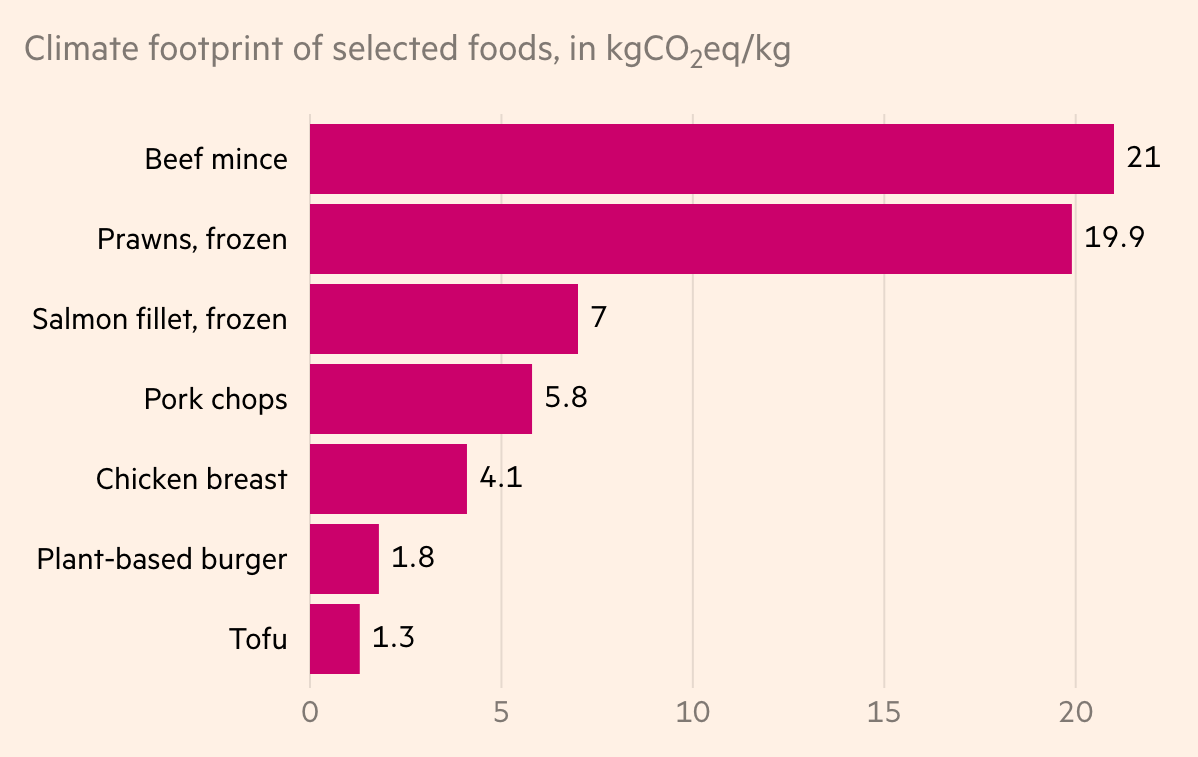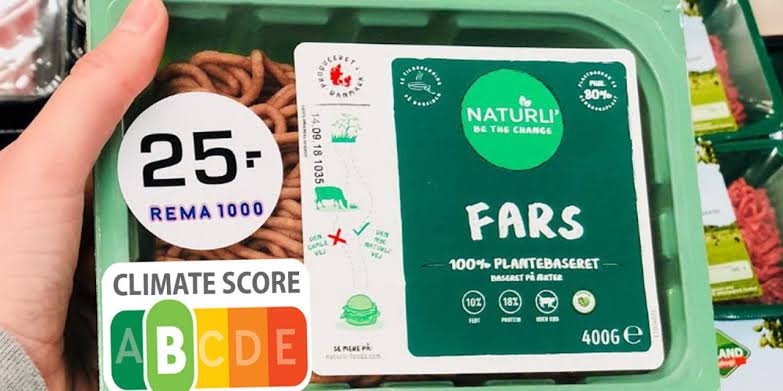According to a new study, information on food packaging that indicates the level of planet-heating gases emitted during production can persuade consumers against carbon-heavy meal options.
Of the many things we can do to reduce our carbon footprints, switching to a plant-based diet is pretty high up in terms of effectiveness.
This is because agriculture is a major contributor to the climate crisis and foregoing the 83% of all land required to feed the livestock that eventually becomes our meat and dairy would save us up to a billion tonnes of CO2 annually.
However, if you haven’t seen For Nature, a 2021 documentary by Greta Thunberg detailing this very issue, you may not be aware of how efficient this means of lessening our environmental impact would be at large.
Fortunately, though it’s unlikely the world’s population will ever fully embrace veganism, we’re starting to witness some significant shifts towards a future in which it’s more encouraged as news of its benefits gains more and more traction.

In a similar vein to recent decisions to add calories to menus to inspire people to make ‘healthier choices’ for their own wellbeing, companies have begun to display environmental impact labelling on their products, throwing the Earth’s wellbeing into the mix as well.
This is according to the Thomas Reuters Foundation, which reported in May that alongside nutritional breakdowns, ethical trade branding, and recycling information, food packaging across the globe is starting to indicate the level of planet-heating gases emitted during production.
The goal being to persuade people against carbon-heavy meal options and for more sustainable eating habits.
Which appears – as uncovered by a new study – to be exactly what’s happening.

‘We found that labelling red meat items with negatively framed, red high-climate impact labels was more effective at increasing sustainable selections than labelling non-red meat items with positively framed, green low-climate impact labels,’ the authors said.
‘In the United States, meat consumption, red meat consumption in particular, consistently exceeds recommended levels based on national dietary guidelines.’
‘Shifting current dietary patterns toward more sustainable diets with lower amounts of red meat consumed could reduce diet-related greenhouse gas emissions by up to 55%.’












.png)









